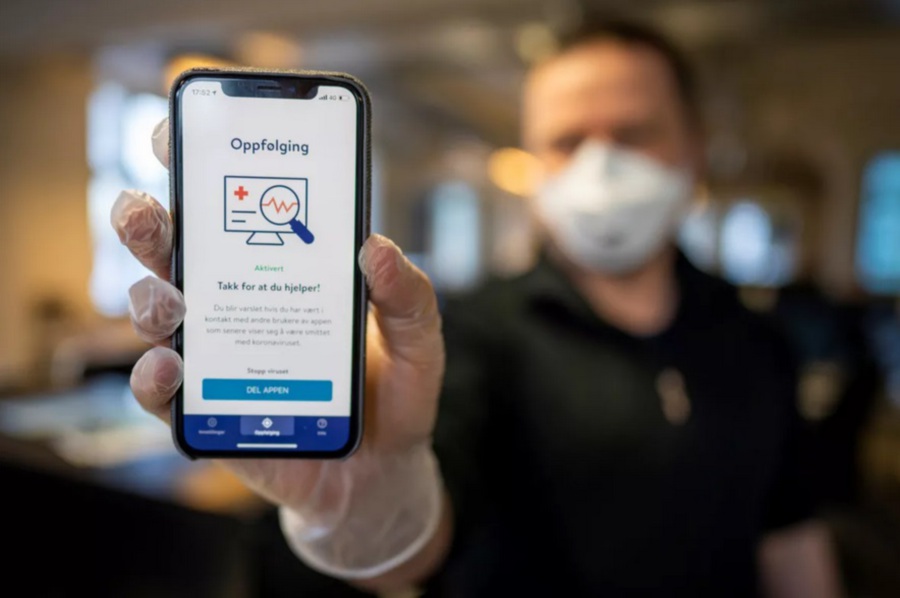Contact tracing apps: Which countries are doing what

Several countries fighting the coronavirus outbreak are using — or debating — phone apps that trace a person’s movements and who they come into contact with, allowing authorities to keep track of infections and alert people in case of contagion risk.
Health experts say the technology is a vital tool for governments hoping to ease lockdowns amid a pandemic that has overwhelmed hospitals and caused nearly 210,000 deaths worldwide.
Yet for contact tracing to be effective, use of the apps needs to be widespread, with people willing — or forced — to adopt a technology that effectively turns their phones into digital surveillance tools.
Here is a rundown of the different approaches adopted since the first COVID-19 cases were reported in China last December, and what officials have learned from their experiences.
What technologies are being used?
Asian countries were the first to roll out tracing apps, with China launching several that use either direct geolocalisation via cellphone networks, or data compiled from train and airline travel or highway checkpoints.
Their use was systematic and compulsory, and played a key role in allowing Beijing to lift the lockdown and halt contagions, with no new deaths reported since mid-April.
South Korea, for its part, issued mass cellphone alerts announcing locations visited by infected patients, and ordered a tracking app installed on the phone of anyone ordered into isolation — aggressive measures credited with helping curtail the outbreak.
Most other countries, however, have turned to bluetooth tracking via apps that are strongly encouraged but remain voluntary, and let authorities “see” when two people’s devices come into close contact.
However officials say actual identities are encrypted, and anyone receiving an alert will not know who posed the potential contagion threat.
This approach aims to address concerns of privacy invasions, particularly in Europe where officials have called for collaborative efforts that would include intense oversight to make sure users know when and how their personal data is being exploited.
So far, however, most European nations have forged ahead alone on app development, while others like Belgium are still debating how to best track infections.
In the United States, there is no federal tracing plan under consideration, but some states have announced their own, either for bluetooth apps or, in the case of Hawaii, sending out daily questionnaires via text and email to help build a database to track infections.
A surprise partnership between Google and Apple to let phones communicate across their separate Android and iPhone operating systems could spur development of more bluetooth-tracking apps in coming weeks.
– How good are they? –
Traditional geolocalisation works best, experts say, since the strength of bluetooth signals can vary based on a phone’s age, and they work best in open spaces.
In Hong Kong and Taiwan, which have managed to limit deaths despite their proximity to China, officials use GPS and Wi-Fi to keep strict tabs on people in quarantine.
Countries relying on bluetooth also face the risk of “false positives” because the signals can travel through walls — an app might warn of close contact and potentially land a person in quarantine even if two devices were in separate rooms.
And health officials say tracing will be of limited use if not enough people install the apps.
In Singapore, for example, where the TraceTogether app was launched on March 20, only about a fifth of its 5.7 million people have installed it, far below the 75 percent rate government officials say is required for the app to be effective.
Australia, which rolled out its bluetooth-tracking COVIDSafe app Sunday, saw nearly two million downloads in the first 24 hours, though that is still just a small fraction of its 25 million people.
But for nations still under lockdown, including Australia and hard-hit European countries including Italy, Spain and France, it remains to be seen if tracing will halt a new surge in cases once people begin to leave their homes.
Despite the heavy death tolls, only a small percentage of the populations in many regions have been infected by the new coronavirus, meaning huge numbers of people would be at risk if the strict stay-at-home orders are eased and businesses and schools allowed to reopen.
Experts say tracing is just one of several measures, including widespread testing, social distancing, and mask and hand gel use, required to lift the lockdowns.
– Privacy at risk? –
The app programmes have alarmed rights activists, who say officials and companies could be tempted to compile huge databases on people’s movements and activities.
Even in democracies such as South Korea where trust in government remains high, critics say the unprecedented access could expose millions to privacy breaches, including by criminals trying to exploit apps being built on the fly by a multitude of private companies.
Officials worldwide have vowed the information collected will not reveal names or other personal information, and will be deleted once the crisis is over.
Australia’s app roll-out included a broad public relations campaign that included endorsements from privacy watchdogs, and a promise to release the programme’s source code for independent review within two weeks.
Apple and Google said last week that their shared technology would let people control their own data, and that the system would probably be shut down after the pandemic ends.
But if too many people opt out of the data-gathering, high-tech tracing will not be enough to help keep the virus from again spiralling out of control.
The French government, which is hoping to lift its lockdown starting May 11, has promised its voluntary StopCovid app will be completely anonymous and temporary.
Disclaimer: The comments uploaded on this site do not necessarily represent or reflect the views of management and owner of Cebudailynews. We reserve the right to exclude comments that we deem to be inconsistent with our editorial standards.
